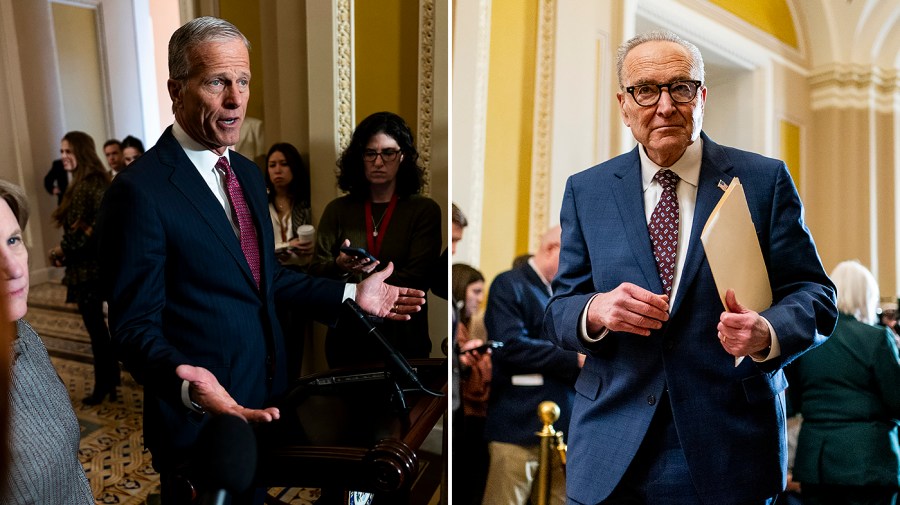
UPDATE: Health insurance costs for families have soared to an alarming $27,000 per year, according to a new report from the Kaiser Family Foundation (KFF). This urgent development comes as over 154 million Americans with employer-sponsored health insurance face steep price increases, with the situation expected to worsen due to ongoing political stalemates in Washington.
Latest data shows that premiums for job-based health insurance have surged by 6% in 2025, marking the first time in two decades that family coverage has risen by this rate for three consecutive years. This increase has brought average costs for a family of four in line with the price of a new Toyota Corolla hybrid. The average premium for an individual plan has also risen by 5% to $9,325, which is nearly $3,000 higher than in 2016.
Eric Trump, controller at Steve Reiff Inc., a small business in South Whitley, Indiana, expressed concern over rising health care costs, stating, “It’s a concern as health costs just keep going up.” Trump reported an 8% increase in his company’s health insurance costs for the 2026 fiscal year, following similar trends from previous years. About half of the employees at his company opt out of insurance, often due to other coverage or the decision to remain uninsured.
The KFF report highlights that the average employee contributes $1,440 for individual coverage or $6,850 for family coverage. Many workers are also facing higher deductibles, with over one-third enrolled in plans requiring a deductible of $2,000 or more. This trend has escalated by 32% over the last five years and 77% over the last decade.
The rising costs are largely attributed to skyrocketing prices for drugs and hospital services, with no signs of relief in sight. The report warns that early indicators suggest cost trends will rise further for 2026, leading to potential increases in premiums unless employers can find ways to offset these expenses.
Among the growing concerns for employers is the high cost of new GLP-1 weight-loss drugs, which many companies are now covering. KFF Senior Vice President Gary Claxton noted, “Large employers know these new high-priced weight-loss drugs are an important benefit for their workers, but their costs often exceed their expectations.” As a result, some companies are reconsidering their coverage options for these expensive medications.
Despite the rising costs of employer-sponsored insurance, this critical issue has received limited attention in Congress, particularly as the federal government shut down on October 1, 2023, due to a budget impasse. Democrats are pushing for the extension of tax credits that assist 22 million Americans in purchasing health coverage through Affordable Care Act marketplaces. Without action, many consumers could see their premiums double beginning in January.
The KFF report is based on a survey of 1,862 public and private employers with ten or more workers, underscoring the pressing nature of these developments. As the landscape of health insurance continues to evolve, stakeholders are urged to monitor these changes closely and prepare for possible implications on coverage and affordability.
As this situation unfolds, the financial strain on workers and families is becoming increasingly evident, raising questions about the sustainability of employer-sponsored health insurance in the coming years.






